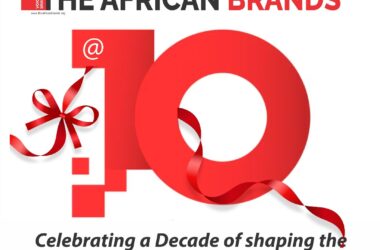By Godwin Anyebe
Marketing in Nigeria is a unique and multifaceted challenge. With a population of over 200 million people, the country offers immense opportunities for businesses to grow and thrive. However, tapping into this market requires a deep understanding of its cultural, economic, and technological dynamics. Nigeria’s diverse consumer base, rapidly evolving digital landscape, and economic volatility present both opportunities and obstacles for marketers looking to succeed in this complex environment.
For businesses aiming to penetrate the Nigerian market, it’s not just about reaching consumers—it’s about engaging with them in ways that resonate with their needs, values, and preferences. Below are key strategies for navigating
Understanding Nigeria’s Diverse Consumer Base
Nigeria’s rich cultural diversity is one of its greatest strengths but also one of its biggest marketing challenges. The country is home to more than 250 ethnic groups, each with its own unique language, culture, and consumer behavior. To succeed, businesses must tailor their marketing messages to appeal to different regions and communities.
A one-size-fits-all approach rarely works in Nigeria. Brands need to localize their marketing efforts, considering not only language differences but also cultural nuances. For instance, advertising campaigns that resonate with consumers in the southern region of the country may not have the same impact in the north, where values and lifestyles differ significantly. Therefore, conducting thorough market research and understanding regional preferences is crucial for any business looking to succeed.
Leveraging the Power of Digital Marketing
Nigeria is experiencing a digital revolution, with internet penetration growing rapidly, especially among younger consumers. As of 2023, approximately 55% of Nigerians have access to the internet, with a significant portion of users being active on social media platforms like Facebook, Instagram, Twitter, and WhatsApp.
For marketers, the rise of digital platforms presents a golden opportunity to reach millions of consumers in real-time. Social media influencers, content creators, and online communities have become powerful tools for brand awareness and customer engagement. Many Nigerian brands are now leveraging influencer marketing to connect with target audiences in an authentic and relatable way.
Businesses should invest in creating robust digital marketing strategies that include social media campaigns, search engine optimization (SEO), email marketing, and mobile advertising. Digital marketing also allows businesses to track consumer behavior and preferences, providing valuable data for more targeted and effective campaigns.
Adapting to Economic Realities
Nigeria’s economic environment is highly dynamic, with inflation, currency fluctuations, and unpredictable government policies often creating instability. For marketers, these economic challenges can make it difficult to maintain consistent pricing and promotions, especially when targeting price-sensitive consumers.
However, economic challenges can also present opportunities for marketers to differentiate their products and services. For instance, offering flexible payment options, discounts, or promotions during economic downturns can help businesses maintain customer loyalty. Additionally, companies that position themselves as affordable yet high-quality alternatives often thrive, particularly in periods of economic uncertainty.
Marketers must stay agile and adapt their strategies to the ever-changing economic realities. Understanding the financial pressures faced by Nigerian consumers allows businesses to tailor their offerings in ways that provide real value, helping them stand out in a competitive market.
Building Strong Relationships Through Brand Loyalty
In a market where word-of-mouth and personal recommendations are highly valued, building trust and loyalty is crucial for long-term success. Nigerian consumers are more likely to stay loyal to brands that offer consistency, quality, and excellent customer service.
One way to foster brand loyalty is by engaging directly with consumers and creating a sense of community around the brand. This can be achieved through loyalty programs, personalized customer experiences, and continuous engagement on social media platforms. Brands that respond to customer feedback, provide reliable customer support, and maintain a consistent brand presence tend to build stronger connections with their audience.
Additionally, many successful Nigerian brands have built their reputation by aligning with local causes, events, or celebrities that resonate with their target market. This form of localized marketing can help companies build a more emotional connection with consumers, leading to greater brand loyalty.
The Role of Traditional Marketing
Despite the rise of digital platforms, traditional marketing channels such as radio, television, and outdoor advertising remain powerful tools in Nigeria. Radio, in particular, continues to be a dominant medium for reaching rural populations, where internet access may be limited. Many Nigerians rely on radio for news, entertainment, and advertising, making it an essential platform for marketers.
Television advertising is also popular, especially during peak viewing times for local dramas, sports events, and reality shows. Outdoor advertising, including billboards and posters, remains a highly visible way to connect with consumers in urban centers. A well-rounded marketing strategy should integrate both digital and traditional channels to maximize reach and impact.
Embracing Innovation and Technology
Nigeria’s tech-savvy population is increasingly embracing new technologies, from mobile payments to e-commerce platforms. For businesses, this means staying at the forefront of innovation and leveraging technology to improve customer experiences. Mobile payment platforms such as Paystack and Flutterwave have made it easier for Nigerian consumers to make online purchases, expanding the possibilities for e-commerce.
Brands that invest in developing user-friendly websites, mobile apps, and seamless payment solutions are more likely to capture the attention of Nigeria’s growing digital consumers. Marketers should also explore opportunities in the fast-growing fintech sector, which offers solutions for payments, lending, and financial services that can enhance business transactions.
Speaking in a telephone conversation on this issue with Consumers Assembly, the immediate past president of the Association of Advertising Agencies of Nigeria (AAAN), Steve Babaeko,
a seasoned voice in the advertising and marketing world said; “marketing in Nigeria is akin to navigating uncharted waters, where each turn presents a new challenge and opportunity. In his view, the complexity of marketing in Nigeria stems from its rich diversity, rapidly changing digital landscape, and unique economic realities.”
“Nigeria’s diversity is both a blessing and a challenge. With over 250 ethnic groups, we are one of the most culturally vibrant countries in the world. But this also means that marketing messages cannot be uniform. Brands need to be versatile enough to speak the language—literally and figuratively—of the many different consumer segments across the country,”
Babaeko explains.
He emphasizes that businesses must go beyond superficial understanding to truly connect with their audiences, tailoring their messaging to reflect local nuances.
On the topic of digital marketing, Babaeko notes that Nigeria’s rapid adoption of technology has transformed the way brands interact with consumers. “The internet has democratized access to information, and social media has given the average Nigerian a voice. Brands that ignore this shift do so at their own peril,” he says.
Babaeko believes that digital marketing offers unparalleled opportunities for businesses to engage with consumers in real-time, allowing for more personalized and direct connections.
However, Babaeko is quick to point out the challenges posed by Nigeria’s volatile economic environment. “Inflation, currency devaluation, and unpredictable government policies make it difficult for brands to maintain consistency. But this is where innovation comes in—brands that are able to adapt quickly and provide real value to cost-conscious consumers are the ones that will thrive,” he asserts.
Babaeko also emphasizes the importance of building strong brand loyalty in Nigeria, a market where trust and word-of-mouth can make or break a brand. “Nigerians value authenticity, and brands that can create a genuine connection with their consumers will always have an edge. It’s not just about selling a product—it’s about creating a community,” he adds.
Steve Babaeko believes that navigating Nigeria’s marketing landscape requires a balance of cultural insight, digital agility, and economic adaptability. Brands that can master these elements are best positioned to succeed in the ever-evolving Nigerian market.
Also speaking on this issue, Elaigwu Inalegwu, a lecturer at Benue State Polytechnic, Ugbokolo, offers a nuanced perspective on the complexities of marketing in Nigeria. His insights reflect the multifaceted nature of Nigeria’s market and the strategies needed for success in such a diverse and dynamic environment.
Understanding the Cultural Mosaic
Inalegwu emphasizes that Nigeria’s rich cultural diversity is both an asset and a challenge for marketers. “Nigeria is home to a multitude of ethnic groups, each with its own traditions, languages, and consumer behaviors. For marketers, this means that a deep understanding of regional differences is essential,” he explains.
According to him, “successful marketing strategies must be highly localized. Brands need to tailor their messages and campaigns to resonate with the cultural nuances of different regions. What appeals to consumers in the southwest may not have the same effect in the northeast,”
Leveraging Digital Transformation
Inalegwu also highlights the rapid growth of digital technology in Nigeria. “The digital revolution is transforming how Nigerians interact with brands. With increasing internet penetration and a vibrant social media landscape, businesses have unprecedented opportunities to engage with consumers,” he says.
He encourages marketers to embrace digital tools and platforms, but also to do so strategically. “Effective digital marketing goes beyond mere presence. It requires engaging content, targeted advertising, and a deep understanding of online consumer behavior,” he adds.
Adapting to Economic Challenges
Economic volatility is another critical aspect of the Nigerian marketing landscape that Inalegwu addresses. “Economic instability, including inflation and currency fluctuations, poses significant challenges for marketers. Businesses must be adaptable and responsive to these changes,” he observes.
Inalegwu suggests that marketers should focus on flexibility and innovation. “During economic downturns, offering promotions, discounts, or flexible payment options can help maintain consumer loyalty. Understanding the financial pressures faced by Nigerian consumers is crucial for developing effective marketing strategies,” he advises.
Building Brand Loyalty
According to Inalegwu, building and maintaining brand loyalty is key to long-term success in Nigeria. “Nigerian consumers value trust and consistency. Brands that deliver on their promises and engage with their audience genuinely are more likely to build lasting relationships,” he explains.
Inalegwu emphasizes the role of community engagement and personalized customer experiences. “Creating a sense of community around the brand, responding to customer feedback, and aligning with local causes can strengthen brand loyalty,” he notes.
The Enduring Relevance of Traditional Media
Further, Inalegwu points out that traditional media still holds significant value in Nigeria. “While digital marketing is on the rise, traditional media such as radio, television, and print continue to play an important role, especially in rural areas where internet access may be limited,” he says.
He advocates for a balanced approach that integrates both digital and traditional media to reach a broader audience. “A well-rounded marketing strategy should leverage the strengths of both digital and traditional channels to maximize reach and impact.”
On his part, Dr. Oludare Ogunyombo, Lecturer, department of Mass Communication, Olabisi Onabanjo University, Ago Iwoye stressed that, “the importance of tailoring marketing strategies to fit Nigeria’s diverse cultural and ethnic backgrounds. Understanding regional differences and incorporating local languages, customs, and traditions into marketing campaigns can significantly enhance their effectiveness and consumer acceptance.”
He highlights the growing significance of digital marketing in Nigeria due to increased internet penetration. Leveraging digital platforms, such as social media, search engines, and mobile apps, is crucial for reaching a broad audience. Utilizing tools like data analytics to track consumer behavior and campaign performance can optimize marketing efforts.
According to Dr. Ogunyombo, deep understanding of consumer behavior is vital. Conducting comprehensive market research to identify consumer needs, preferences, and purchasing patterns helps in crafting targeted and relevant marketing messages. This insight ensures that products and services meet the specific demands of the Nigerian market.
He notes that infrastructural challenges in Nigeria, such as unreliable power and poor transportation networks, can impact marketing operations. Developing robust logistics and supply chain strategies, as well as partnering with local distributors who are familiar with regional issues, can mitigate these challenges.
Dr. Ogunyombo emphasizes the need for brands to build trust through transparency, consistent quality, and excellent customer service. A strong, trustworthy brand can differentiate itself in a competitive market and foster long-term consumer loyalty.
Adaptability, he points out the importance of being adaptable to Nigeria’s volatile economic environment. Marketers should develop flexible strategies that can respond to economic shifts, including adjusting pricing strategies and offering value-driven promotions during economic downturns.
Dr. Ogunyombo underscores the value of CSR in Nigeria. Consumers are increasingly responsive to brands that contribute positively to social and environmental causes. Engaging in CSR initiatives can enhance brand reputation and build stronger connections with consumers.
In conclusion, success in Nigeria’s marketing landscape requires a nuanced approach that integrates local insights, digital innovation, and adaptability. By addressing these factors, businesses can effectively navigate the complexities and thrive in this dynamic market.









